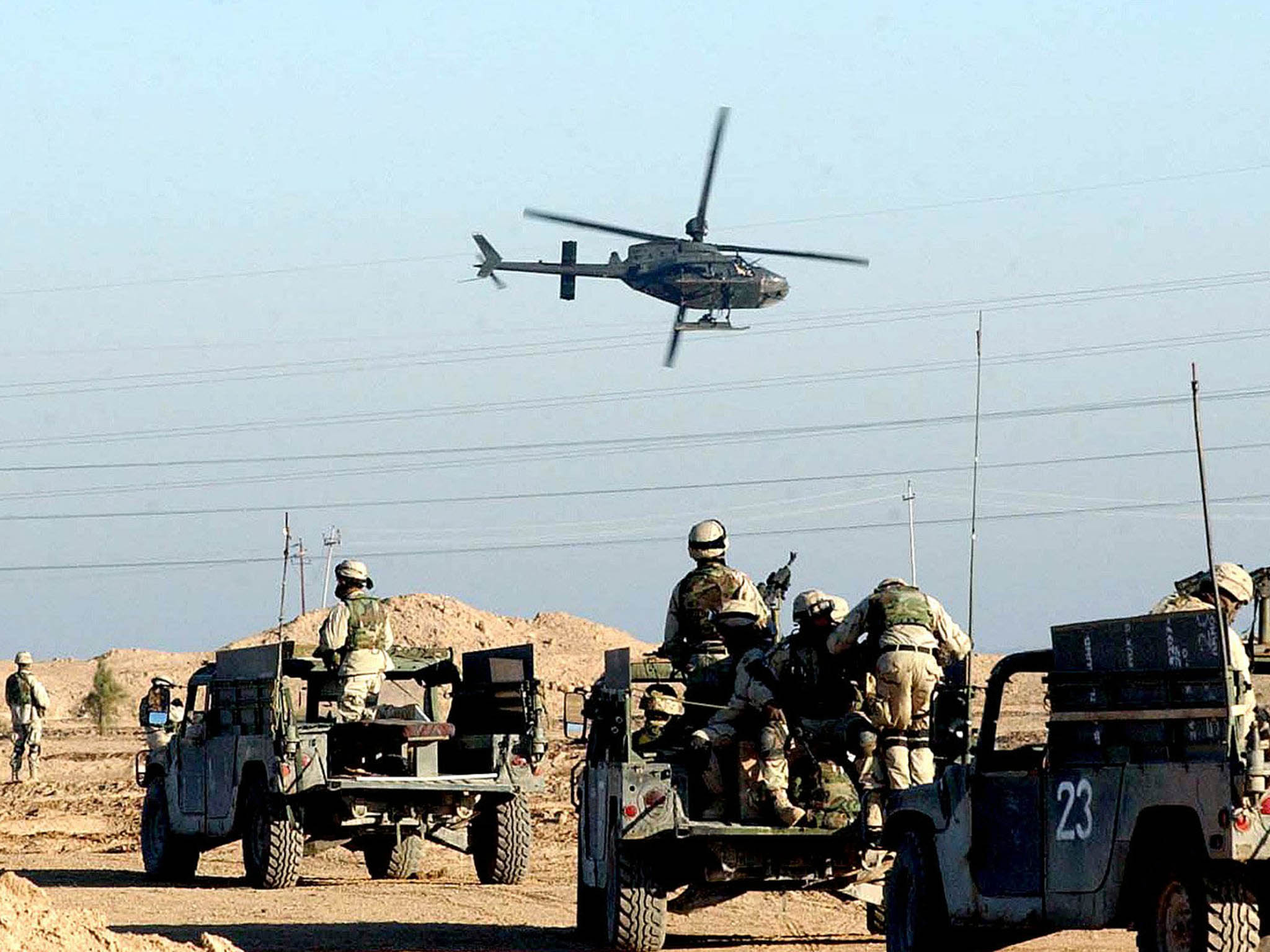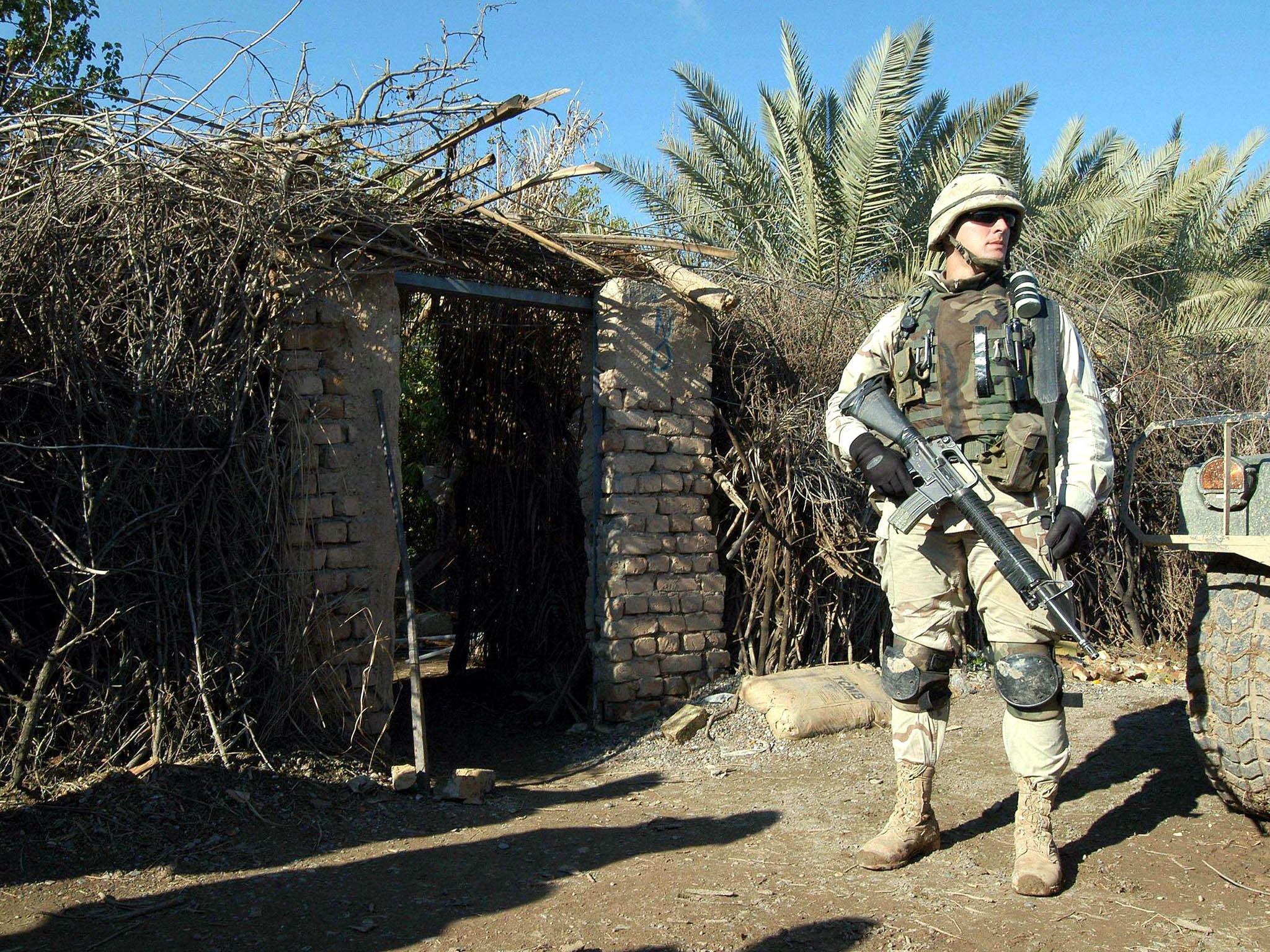The Iraq War 'black ops' that caused a split between US and UK
How tensions grew between the American and British military as the security situation in Iraq unravelled

Your support helps us to tell the story
From reproductive rights to climate change to Big Tech, The Independent is on the ground when the story is developing. Whether it's investigating the financials of Elon Musk's pro-Trump PAC or producing our latest documentary, 'The A Word', which shines a light on the American women fighting for reproductive rights, we know how important it is to parse out the facts from the messaging.
At such a critical moment in US history, we need reporters on the ground. Your donation allows us to keep sending journalists to speak to both sides of the story.
The Independent is trusted by Americans across the entire political spectrum. And unlike many other quality news outlets, we choose not to lock Americans out of our reporting and analysis with paywalls. We believe quality journalism should be available to everyone, paid for by those who can afford it.
Your support makes all the difference.It was a well planned, lethally effective attack: Isis suicide bombers and gunmen killed 35 people at a Shia shrine in the town of Balad. Just another grim reminder last weekend of the carnage that continues in Iraq, 13 years after "liberation" of the country by troops sent by George W Bush and Tony Blair.
Balad, 50 miles north of Baghdad, played a crucial, but little known part in the vicious war in the shadows which followed the invasion. It was from here that the US commander Stanley McChrystal ran counter-insurgency with American and British special forces. These "black-ops" were lethally effective, playing a key part in the death and capture of 3,500 insurgents. It was also an operation which caused a deep dispute between the US and UK.
The Chilcot inquiry into the Iraq War has reported the tensions that grew between the American and British military as the security situation unravelled, but the secret Balad operation is not something it had examined.
The mission was an extraordinary set-up: inside the command centre – "The Machine" – was the "Death Star", on the walls of which were banks of television screens, "Kill TV", running live pictures of action taking place and surveillance footage in real time from which suspects could be picked out for future arrest or elimination.
The violence at the time was relentless, partly the result of the decision by the American civilian administrator for reconstruction in Iraq, Paul Bremer, to disband the Iraqi army and police in a shortsighted policy of debaathification. There were hardly any credible local forces to take on the Islamist jihad which resulted and Major General McChrystal had been tasked with sorting out the mess.
The team he ran was also under orders to track down Saddam Hussein’s weapons of mass destruction. They quickly decided that this was a wild goose chase and focused on the real danger at hand: the insurgency. Major Gen McChrystal would often lead the raids himself, his Delta Force team informed at the last minute that the commander was coming along for the ride. No one was quite sure what the Pentagon policy was on two star generals joining such dangerous missions, but then few people in Washington had any grasp of the campaign of terror and counter-terror taking place in Iraq.
Some senior British officers were unhappy at what was going on and the involvement of the UK’s SAS and the SBS. “Why are we helping to run Latin American-style death squads?” One British commander, himself ex-SAS, demanded to know. The SAS were, on at least two occasions, barred from carrying out such missions in the British-run south of the country.
Questions were asked about how information was being obtained from suspects in Balad. There was an unofficial inquiry into the treatment of prisoners at the base, although no evidence was found to implicate Maj Gen McChrystal.
There were notable successes from the mission, with UK forces taking part in some of them, such as the freeing of the British hostage Norman Kember and breaking supply chains providing explosives to be used against British forces in Basra. Then came the biggest success of all, the obtaining of intelligence which led to the killing of Abu Musab al-Zarqawi, the leader of al-Qaeda in Iraq, who had taken the jihad to a new levels of violence.

But the reverberations from special forces operations in Iraq continued. Six years later Maj Gen McChrystal, by now a four star general and commander of international forces in Afghanistan, had received a complaint from the UK’s director of special forces (DSF) for speaking about operations carried out with the SAS and SBS in Iraq and Afghanistan. Meanwhile an SAS lieutenant colonel, who had served with distinction under Maj Gen McChrystal in Iraq, was told to stay away from the Regiment’s headquarters in Hereford.
The Chilcot inquiry noted that the “US and UK strategies had, in effect, been on different courses since the UK decision to focus its attention on MND (SE) [Multi-National Division South East, the British run zone] in 2003. As result of this decision, the UK had acquired distinctly different priorities from the US. It was only marginally involved in the central tasks of stabilising the Iraqi government in Baghdad and managing sectarian divisions, while it had come to see its main task in Basra as one of keeping the situation calm while building the case for withdrawl”.
In May 2006, General Sir Mike Jackson, the head of the British Army, told Tony Blair that “the perception, right or wrong, in some if not all US military circles, is that the UK is motivated more by the short-term political gains of early withdrawal than by the long-term importance of mission accomplishment, and that, as a result, MND(SE)’s operational posture is too laissez faire and lacks initiative”.
Eight months later, Sir David Manning, the British ambassador to the US, reported that Condoleezza Rice, the US Secretary of State, had asked him “to tell her honestly whether the UK was now making for the exit as fast as possible”. The answer, to those watching events on the ground, was a definite “yes”.
Join our commenting forum
Join thought-provoking conversations, follow other Independent readers and see their replies
Comments